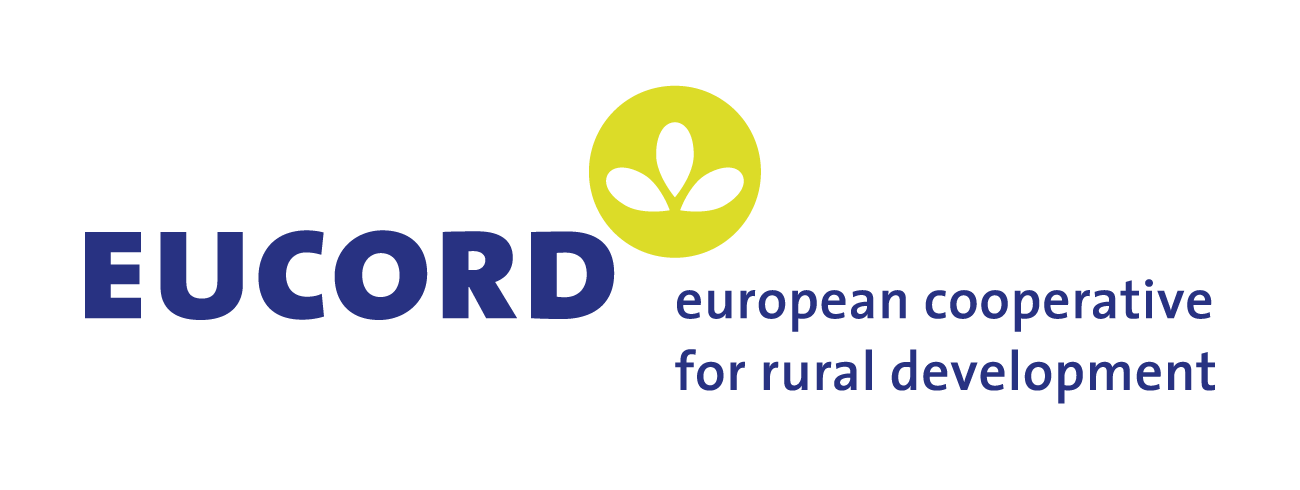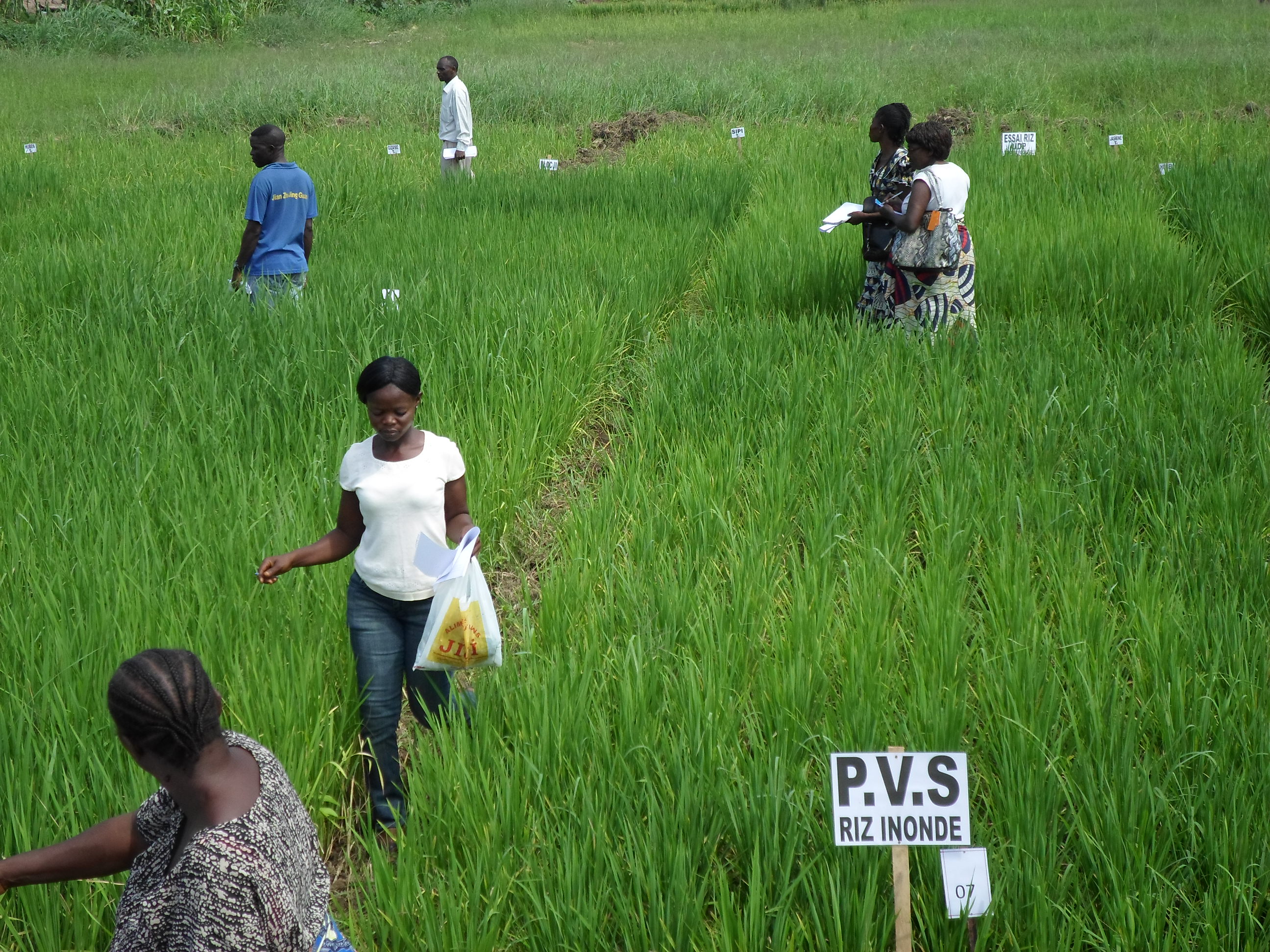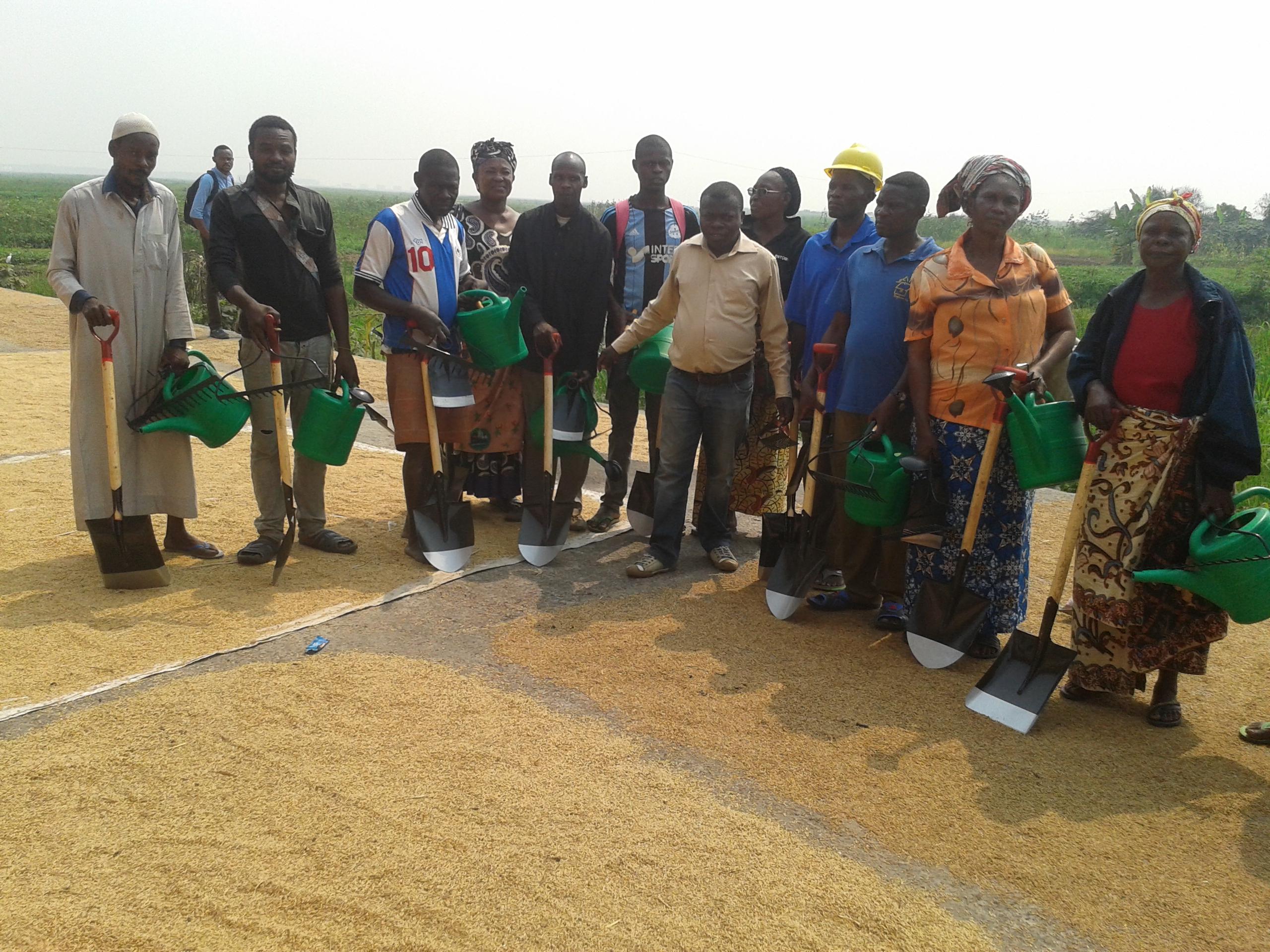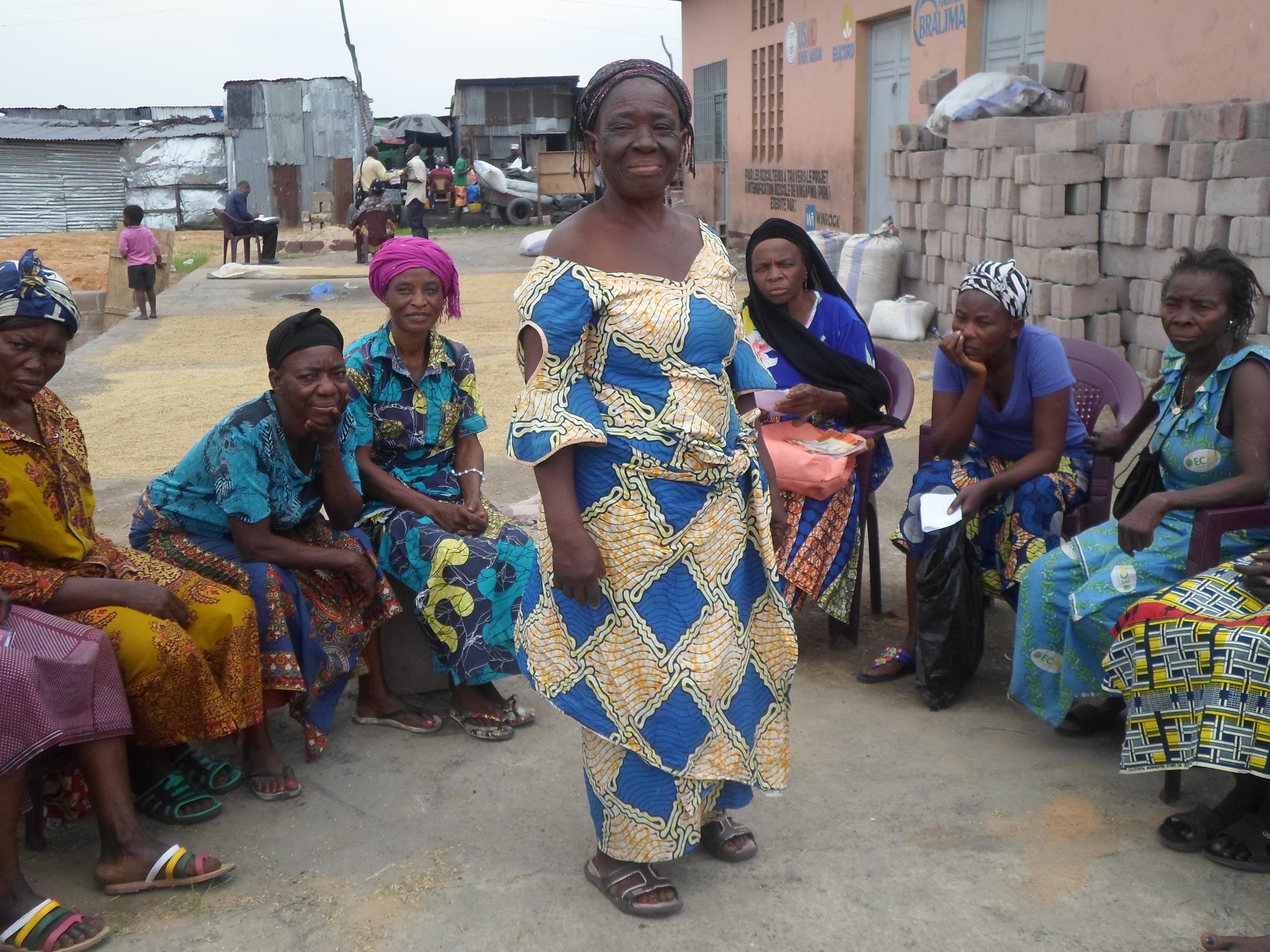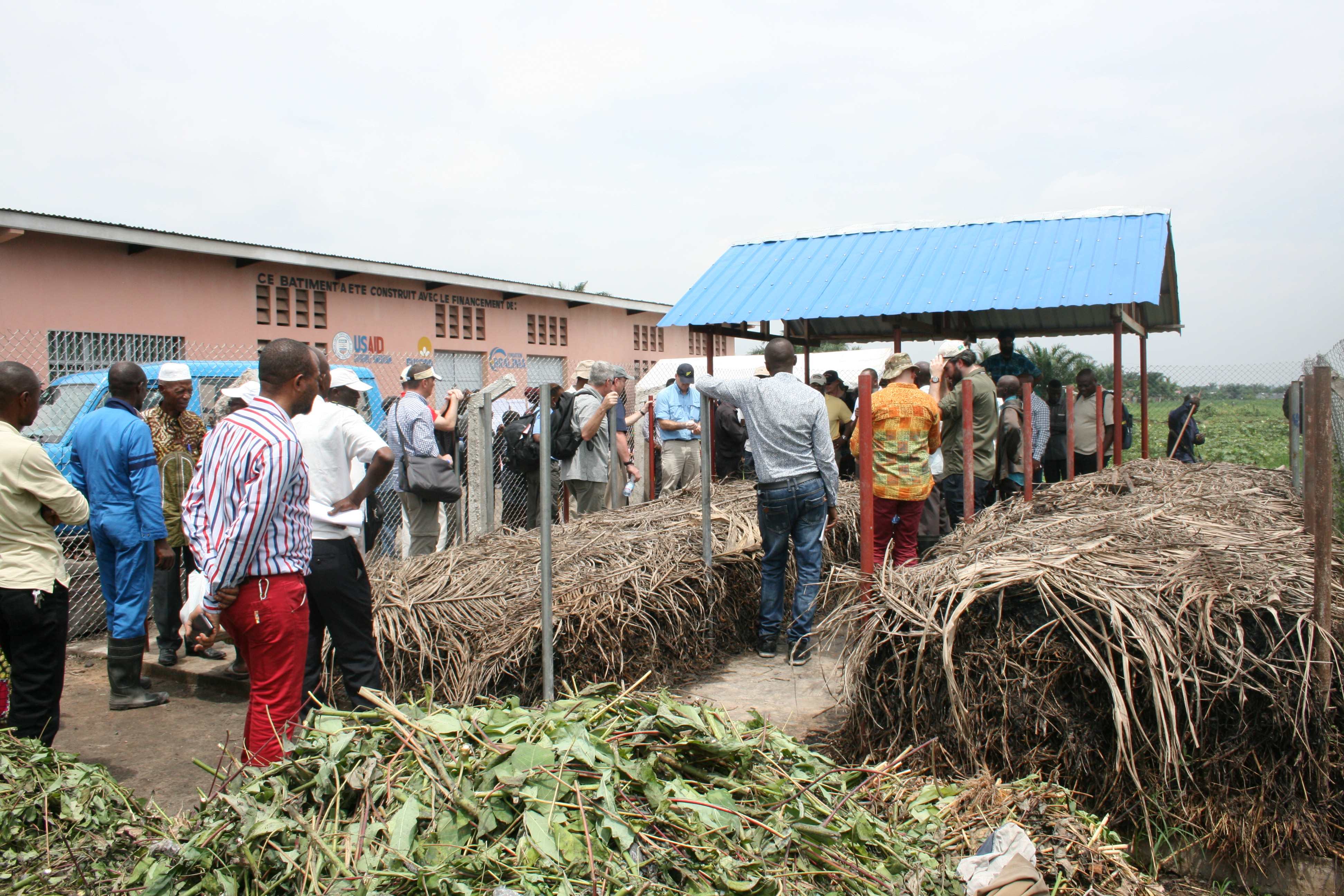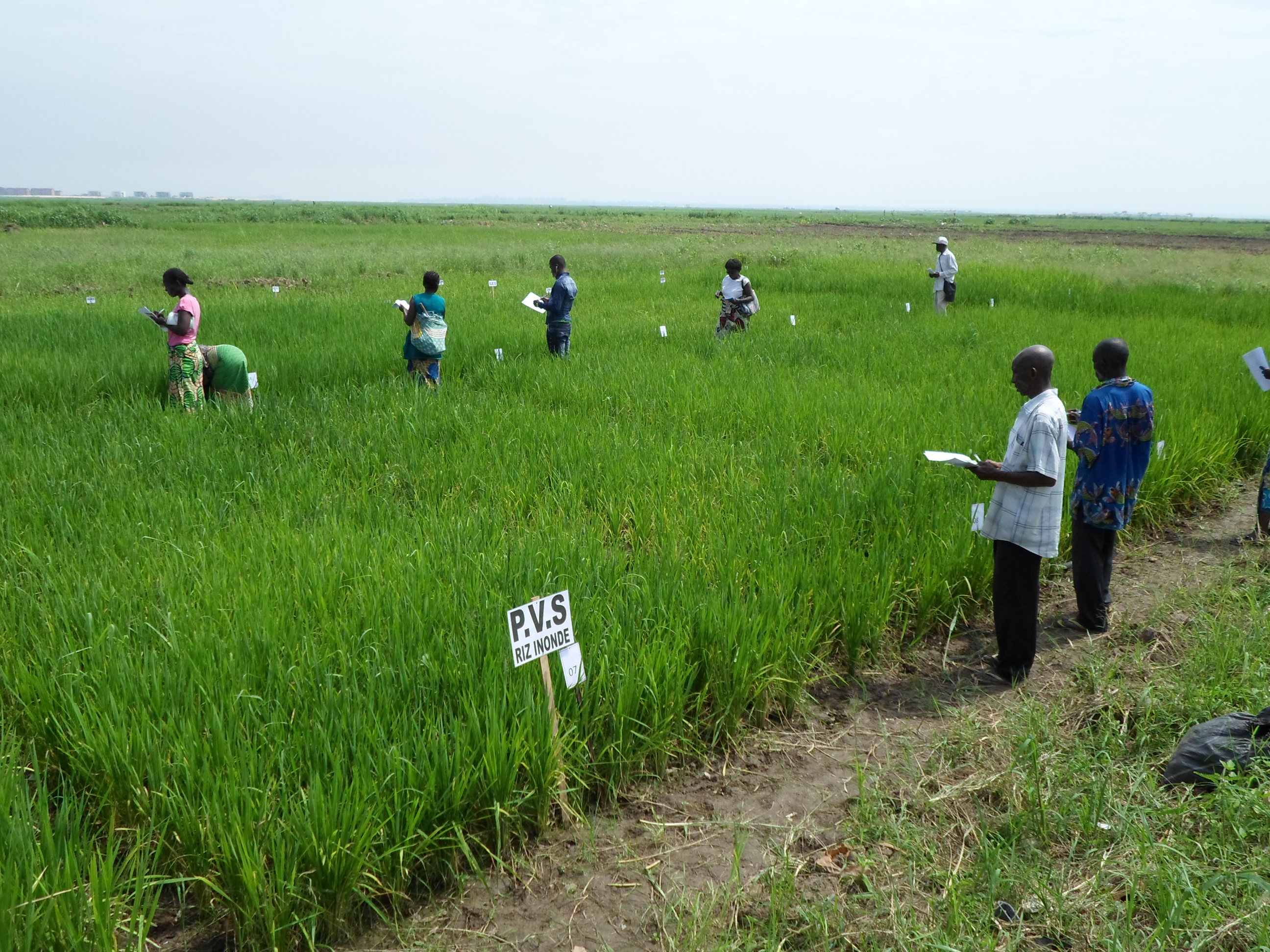Kingabwa Rice Intensification Project phase II (PIRK II) - 2015-2019
Donors:
USAID, BRALIMA
Partners:
Winrock (lead), BATIDE, National Rice Programme, National Nutrition Programme, Kingabwa Farmers Association and Cooperative
Goals
- To develop 120 ha of irrigated land in the Pool Malebo, to demonstrate to farmers the System of Rice Intensification (SRI), and supports the development of a brand for Kingabwa rice (“Ngwele” rice) to improve marketing.
- To target health and nutrition activities for Kingabwa families and empower local women to become change agents in their communities.
What We Do
This project is a continuation of the Kingabwa Rice Intensification Project (2011-2015). It supports 2,000 rice farmers and the surrounding community. It has supported the development of several local enterprises, including a woman led rice seed multiplication business, a composting company, and the rice marketing cooperative. Nutrition workshops have sensitized women to nutritious preparations for children in particular and 13 Community Nutrition Volunteers actively work with households and local food providers to improve the food security and nutrition of the area.
Accomplishments
- The PIRK II project has made significant improvements to the deteriorated irrigation infrastructure as well as an adoption of improved rice production techniques. Also, PIRK II established committees to manage water infrastructure; community microenterprises received financial and organizational support that should allow them to continue their activities.
Outcomes
- The project has leveled 72 ha of land, installed a water pump for controlled irrigation and established 24 open wells for the irrigation of vegetables.
- Facilitated $470,149 USD in sales of 545.47 MT of white rice and paddy rice.
- Trained 20 community leaders on advocacy and leadership.
- Over 1,200 farmers have received training in intensive rice production techniques including SRI.
- Conducted awareness-raising activities (including home visits, skits, and culinary demonstrations) and trained 740 individuals on nutrition, health, hygiene, and environmental sanitation.
- Trained 832 farmers in Kingabwa and Masina on improved rice and vegetable techniques.
- Empowered and trained 13 women to serve as community nutrition volunteers; these women supported 1802 households.
- Established 15 demo plots (8 led by women) to grow six new varieties of vegetables; supported 182 farmers to cultivate 282 small plots of these vegetables.
